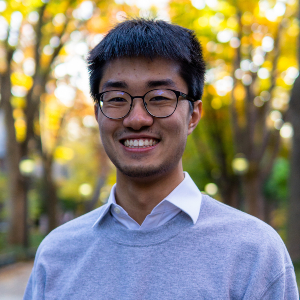
With the pandemic disrupting in-person learning and lab time in 2020, Joshua Chen, junior in the Department of Materials Science and Engineering (MSE), got together with a group of classmates and dreamed up a student-run space where they could apply their newfound knowledge to creative projects. Working with MSE Lab Manager Steve Szewczyk after returning to campus, the group turned their proposed MatSci Makerspace into a reality.
During open hours, Penn undergraduates can participate in workshops and get hands-on experience with the tools and techniques that are used to get the most out of modern materials.
“The MSE department emphasizes training of our students with real-world skills and perspectives through creation, innovation and discovery,” says Shu Yang, Joseph Bordogna Professor and Chair of MSE. “The design, fabrication and testing done in the MatSci Makerspace will help deepen students’ knowledge on the synthesis, processing, structure, properties and application of materials. It will also foster teamwork and communication, which is essential in an ever-more complex ecosystem.”
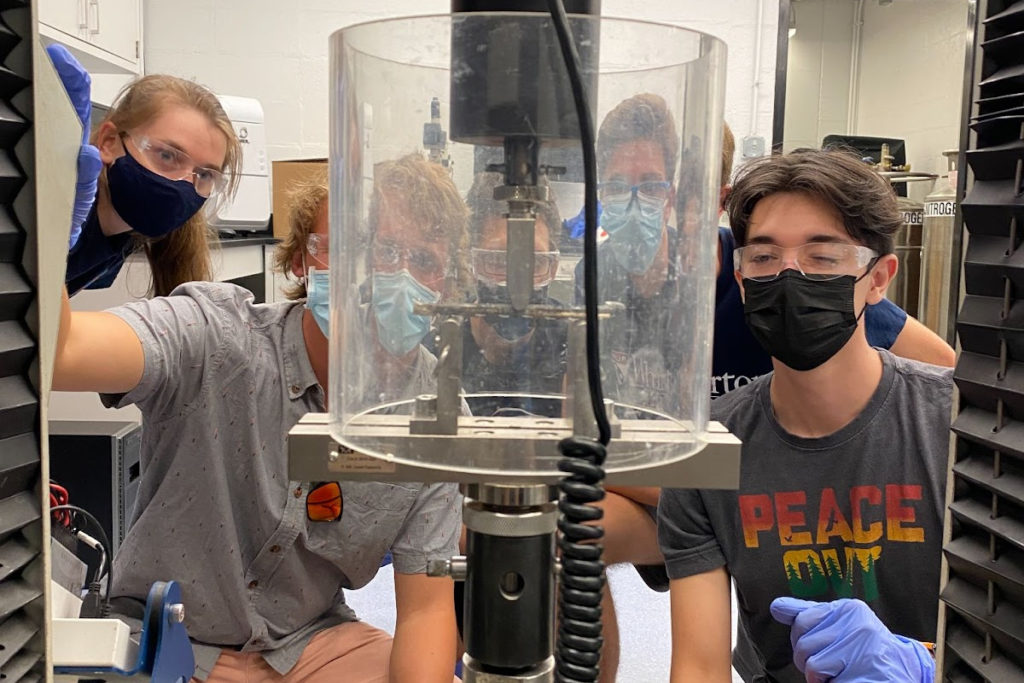
When COVID hit in 2020, like many others I became constrained to my room where I spent my time solely between my bed and my desk. Though things moved along in the virtual world via Zoom, physical life was at a practical standstill. Most significantly for me, my lab research turned into a “remote experience.” It felt like I was missing something important.
I had grown up building things (robotics, home projects, etc.) and as a Materials Science and Engineering major, I had been constantly told that those stories of people tinkering in their garages and building personal passion projects at home just wouldn’t be possible for materials. You can’t exactly build a scanning electron microscope, synthesize new materials, fabricate a chip or develop a new hydrogel that electroplates metals without expensive equipment.
Or could you? Maybe I could just start with something small. What could be the harm in trying?
Realizing that I didn’t have to start so big made me particularly excited about creating just for the sake of trying to do something cool and unseen. I started by demolishing my monitor and pulling out the LCD layer, which I used to create a janky transparent display. I also bought a few mini thermoelectric Peltier devices, which I took apart and sewed into my chair cushion so that I could choose whether I wanted my butt to be hot or cold based on how the cushion was flipped.
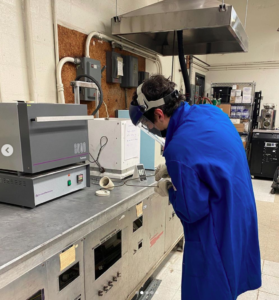
I thought these fun little projects were hilarious, and even better, I found that they heavily contrasted with the constant stress of grades, summer internships and academic achievement in general.
In starting these small projects, I realized that there had been something missing in classwork, where so much of our learning was on paper. In discussing with my classmates, I found that this sentiment was largely shared. We were missing the creativity of getting hands-on and experimenting with novel concepts for the sole reason that they were cool. We needed a culture where it was normal to go after these new ideas; what we were missing were passion projects.
Together, we began building the concept of the MatSci Makerspace from scratch, getting the enthusiastic backing of Steve Szewczyk, the MSE Lab Manager, Professors Karen Winey and Shu Yang, the then and current Chairs of MSE, as well as Professor Liang Feng, MSE’s Undergraduate Chair.
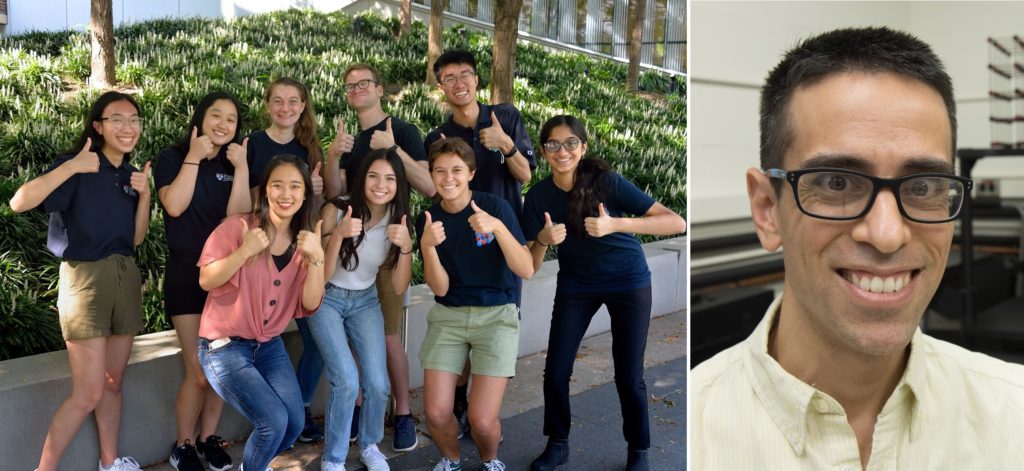
Our vision was simple: we wanted to create a space where students like us could pursue passion projects, take ownership and freely explore materials-centric ideas that could be separate from classwork or research. Working with the Department last semester, this vision has become a reality.
The MatSci Makerspace is now hosted by the MSE Departmental Laboratory in the basement of the LRSM building, where — with the proper training —Penn undergrads can use its state-of-the-art materials synthesis and characterization equipment.
From thermal analysis and mechanical testing, to scanning electron microscopy and glass blowing, undergrads have access to technologies that are difficult to find elsewhere. During our open hours, the lab is available for anyone to come in to socialize, tinker or brainstorm with fellow students, during which Steve is available to offer feedback on ideas and guidance on the techniques available in the lab.
For those just getting started, we are organizing workshops to teach specific hands-on skills and training sessions for some of the lab’s equipment. And for more experienced makers, we are developing a project proposal process where plans are submitted for a feasibility and safety review, with additional training provided as needed.
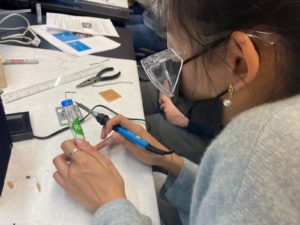
So far, we’ve held two workshops: one where attendees designed their own composites casted in acrylic to be broken on the lab’s mechanical tester, and another where attendees practiced soldering and used tubes of lip balm to build mini flashlights. I’ve personally also taken the opportunity to start a new passion project of my own during open hours, attempting to build an electroplating pen that can deposit a layer of solid copper onto metal surfaces using a hydrogel tip.
As education is shifting toward project-based learning, the need for spaces where students are encouraged to explore concepts on their own must continue to be emphasized. In particular, deep tech and science-y ideas that are less accessible shouldn’t be left behind in this push toward project spaces. Our hope is that the MatSci Makerspace will be an essential step in bridging this gap.
If you are interested in getting involved at the MatSci Makerspace, you can visit the MatSci Makerspace website and reach out to msemaker@seas.upenn.edu with any thoughts or questions. Open hours of the MatSci Makerspace for the Spring semester are now available at mselab.seas.upenn.edu/makerspace.
